WHAT TO EAT TO REPEL MOSQUITOES

Mosquitoes mostly rely on their keen sense of smell to identify their favorite food source: People.
If you aren’t already aware, and you don’t happen to have the smelling capabilities of a mosquito, the things you eat can greatly affect the chemicals you release and, therefore, your scent. Some of the fragrances created by your diet are unappealing to mosquitoes or otherwise mask your natural aroma.
Mosquito repellent foods can make it more difficult for mosquitoes to find and feast upon you. Below are some quick and easy methods to keep mosquitoes at bay, without having to cover yourself head-to-toe in unappealing chemicals.
+++
WHAT TO EAT
These 7 mosquito repellent foods can be easily incorporated into your normal diet to combat your persistent insect bite problems.
1. Garlic And Onions
How it works: Garlic is perhaps the most well-known food linked to deterring mosquitoes. This popular Italian food ingredient releases a compound known as allicin, which is released through your pores when you consume it.
Allicin interferes with your natural scent, therefore helping to mask you from those persistent pests. Onions and other members of this plant family, such as leeks, shallots, and chives, also emit allicin when consumed, so they can be used interchangeably.
How to use it: Because allicin depletes the longer it is exposed to heat, many people suggest that this repellent method works best when these foods are cut into slivers and consumed raw.
However, if eating uncooked garlic and onions is unappealing to you, both make a great addition to your favorite pastas and tomato-based dishes. They can even be used to add some flavor to stir-fry, rice, and baked chicken!
2. Apple Cider Vinegar
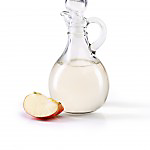
Don’t worry – it won’t affect the way you smell to other people!
How to use it: Many tales claim that taking an undiluted tablespoon of apple cider vinegar at least once per day is just what you need to keep mosquitoes away for good. For a more pleasant experience, you can mix the dose with honey.
You might also try incorporating apple cider vinegar into soups, homemadesalad dressings, and even cocktails and other beverages.
3. Lemongrass
How it works: Lemongrass contains an oil known as citronella, which is a popular natural bug repellent that is generally applied to the skin or used in other forms. Eating lemongrass has been shown to provide similar protection as well.
All of these methods are effective because this fragrant plant helps to conceal your natural odors, which makes it harder for mosquitoes to identify you.
How to use it: Lemongrass is frequently used in many styles of Thai cooking and makes a great addition to soups and curries.
If you want to protect guests at your backyard barbecue, try serving some delicious lemongrass wings!
4. Chili Peppers
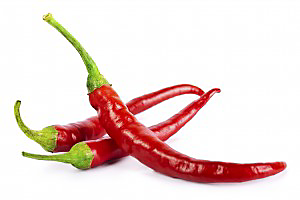
In addition, mosquitoes are repelled by the smell that you release upon eating capsaicin-containing foods, so they steer clear.
How to use it: Chili peppers are a great way to add a little heat to your favorite foods. They are popularly used in chili, hot sauce, Pico de Gallo and other salsas, as well as many other tomato-based dishes.
5. Tomatoes
How it works: Tomatoes are one of several foods that are rich in thiamine, also known as vitamin B1. Many people suggest that a diet abundant with thiamine can be very effective at deterring mosquitoes and some other bugs, though this has faced some debate in recent years. Thiamin-rich tomatoes make you less enticing to mosquitoes and prevent them from biting.
If you still get bit, you can rub the juices from your leftover tomatoes on the affected area to stop the itching!
How to use it: With so many ways to use them, tomatoes can easily be incorporated into your daily meal routine. Try some simple favorites such as tomato soup and freshly tossed salads, or top your favorite pasta with a zesty tomato sauce - bonus points if you throw in some garlic and onions!
You could even make some bite-sizedtomato and cheese cups to share with your friends at the next outdoor event.
6. Grapefruit
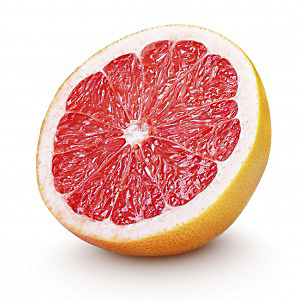
This is because of a compound contained in grapefruit called, nootkatone, which is used as both an insecticide and natural pesticide.
How to use it: Citrus fruits can make a great addition to your daily meal routine. Try eating half a grapefruit for breakfast before you start your day, or combine it with other citrus fruits to create a fresh fruit salad.
For an on-the-go dessert to keep you protected no matter where you are, you can whip up some grapefruit cupcakes.
7. Beans And Lentils
How it works: Beans and lentils work in a similar way to that of tomatoes. All of these foods are rich in thiamine, and release a smell that is repellent to bugs when consumed.
How to use it: Beans and lentils can be added to just about anything to add some needed flavor or texture. Whether you use them as a side dish to complement your entree, create spreads such as hummus, or add them to your favorite spicy foods such as chili or burritos, these popular legumes are a great way to enhance you meals and shield you from mosquitoes.
+++
WHAT TO AVOID
These 3 common food types have been shown to create a scent that is more appealing to mosquitoes, making you a prime target for unwanted feasting.
1. Beer
Researchers still aren’t exactly sure whybeer seems to attract mosquitoes; they just know that it does. Consuming even small amounts, such as a single 12 oz. bottle, has still proved appealing to mosquitoes and invites lots of bites.
2. Salty Foods:
These types of food produce high amounts of lactic acid, which has been shown to attract mosquitoes. This is the same reason that you are more prone to mosquito bites during exercise.
3. Sweet / Sugary Foods
This one is under a lot of debate. Some people suggest that consuming foods with high sugar content makes our skin sweeter and more appealing to mosquitoes, while others say that it has no affect. But if you plan to spend a lot of time outside, you might just want to cut your losses and skip the sugary foods.
+++
PREVENT MOSQUITOES FROM MAKING A MEAL OF YOU
Planning the right meals during mosquito season is a great, natural way to prevent these unwanted pests from feasting upon you and your family. However, if you spend a lot of time entertaining guests in your backyard you might consider a Mosquito Magnet® trap, which can help drastically reduce mosquito populations around your home.
+++
YOUR SOLUTIONS
Do you have your own secret tricks to deterring mosquitoes? Whether it’s a tried and true classic method or personal discovery, let us know in the comments below or visit us on Mosquito Magnet® on Facebook.
Xtremene.blogspot.com
Also be sure to subscribe to our E-Newsletter, which will clue you in on our new products and provide you with the expert advice on everything you need to know about mosquitoes.
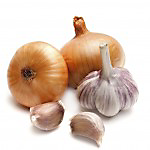
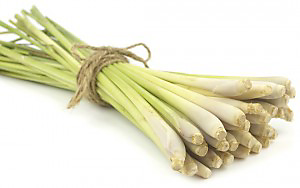
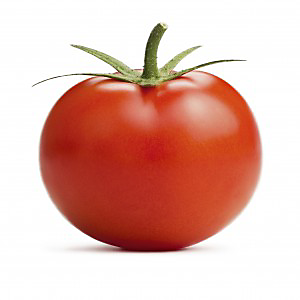
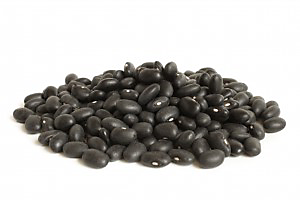

Comments
Post a Comment